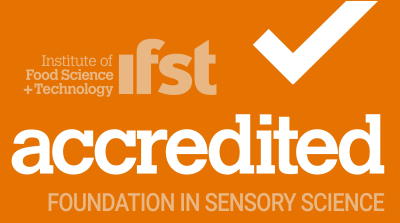Sensory evaluation – an introduction, live online tutor-led training course
Optional IFST Foundation exam will take place from 1000 - 1045 hours on 27th February - this will be remotely delivered and invigilated (exam is included in the course fee).
For the September course the exam will take place on 1000 - 1045 hours on 29th September.
Dates
Prices
Members - £745 + VAT
Non-members - £970 + VAT
Venue
Online
Delegate feedback (2025):
- The tutors were very successful as they delivered the information clearly and effectively, ensuring all participants understood the content.
- The course was well-structured, engaging, and interactive, keeping us involved.
- Both tutors were great, knowledgeable about the subject.
- Very interesting and interactive.
- The tutor was very supportive and kept the session engaging throughout.
- Tutor was great. Really good information given.
- Very good, very informative and tutor had time to answer any questions.
- Tutor extremely thorough with the content and explaining parts of it further.

Benefits of attending
This live, interactive online course provides information on principles of sensory science, the human senses and how they are used in sensory evaluation practices, sensory methodology and best practice when conducting these methods. Typical attendees usually include those with basic knowledge or who are new to sensory science. They will gain an understanding of the importance of objective sensory evaluation activities in the food and drink industry. Attendees will also get the opportunity to gain a qualification in Sensory evaluation (IFST accredited – foundation level).
The course will be delivered live online over the course of two mornings (0900 - 1300 approx), participants will be sent log in details for a Microsoft Teams session. Samples will be posted in advance to participants for the practical sessions.
Please note if you wish to attend the course from outside the UK you will need to register 2 months beforehand to ensure there is time for the course samples to be posted and clear customs.
Training Course content
- Introduction to sensory science - definitions, applications and benefits
- Physiological and psychological aspects of perception - the human senses
- Practical considerations for sensory testing – best practice, facilities and assessors
- Basic requirements of sensory functions
- An introduction to the three main types of methodology in sensory science and its uses
- A brief introduction to sensory statistics and interpretation of terminology
Course aims
- To provide an introduction to the principles of sensory science
- To show practical demonstration of the screening process when using sensory assessors
- To highlight the importance of conducting best practice
- To show the differences in sensory methods using demonstrated practical activity
- To understand how quality systems can be used within a sensory function
- To introduce statistical terminology and how statistics are used in Sensory Science.
Learning outcomes
At the end of the course you will be able to:-
- Recruit a sensory panel
- Screen new assessors to determine their sensory acuity
- Use new training techniques gained on the course to get the best out of your panel
- Explain why best practice is important
- Define the differences in the three main categories of sensory methodology and its uses
- Understand the basic sensory statistical terminology used and how to interpret it
- Have the opportunity to demonstrate competency and awareness by taking the foundation exam
This course can be customised and is available in house - please contact training@campdenbri.co.uk for more information.
Related training
Sensory evaluation workshop (IFST accredited – intermediate level)
Further information
Our training team will be happy to help with any enquiry on +44(0)1386 842104 or at training@campdenbri.co.uk

